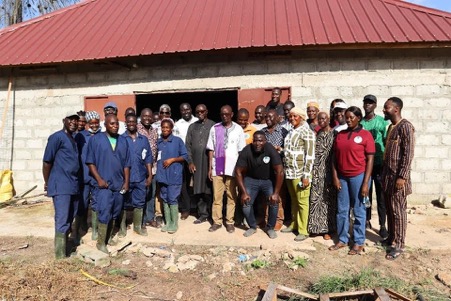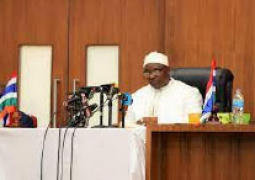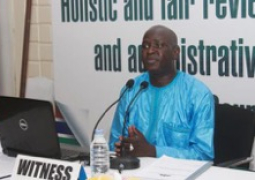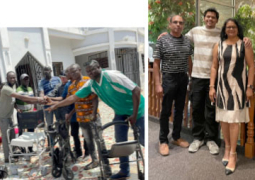
Officials said the tour was meant to monitor the progress and challenges in the implementation of several agricultural projects, assessing their impact on production and the innovations adopted by beneficiary communities and individuals.
The tour, they went on, will also enable them to determine how well these projects are aligned with their intended objectives.
The CPCU, which oversees all agricultural projects across the country, sought the joint oversight visit with the National Assembly Committee on Agriculture in order to identify areas that might require immediate government intervention for the effective implementation of the projects.
The tour, officials further said, was also intended to provide the lawmakers with first-hand insights on the state of the projects and to stimulate their support to the sector in general.
In an interview with The Point, Hon. Omar Darboe, the chairman of the select committee, underscored the significance of the tour, saying: “We need to be on the ground and see for ourselves what is happening with these projects.”
He added: “Our role as parliamentarians is to ensure that these initiatives are not just on paper but are being implemented effectively with a view for us to achieve the intended impact.”
For the part of the Ministry of Agriculture, the visit was coordinated by the CPCU and involved the participation of various heads of departments, including the Department of Agriculture, Department of Livestock Services, regional directors and field workers.
Among the intervention sites visited were those funded by the Gambia Inclusive and Resilient Agricultural Value Chain Development Project (GIRAV) which is financed by the World Bank.
Officials said the GIRAV project is aimed at supporting agricultural value chain development and shift the sector from subsistence to more market-oriented farming.
The tour also included a visit to the Rice Value Chain Transformation Programme (RVCP), which is financed by the African Development Fund (ADF).
The RVCP also seeks to contribute to food and nutrition security and enhance economic growth by reducing rice importation, aiming to increase rice production by moving towards commercialised, market-driven farming.
Additionally, the team reviewed Project 2 of the Programme to Strengthen Food and Nutrition Insecurity in the Sahel (P2-P2RS), which is also financed by the ADF.
This project aims to improve living conditions and food and nutrition security in the Sahel and West Africa, focusing on priority value chains like maize, rice, findi, small ruminants, and vegetable gardening and along with water irrigation infrastructure.
The Regional Rice Value Chain Development Project (RRVCDP) was another key focus of the visit.
The five-year programme (2020-2025) is being implemented in The Gambia, Senegal, Sierra Leone, Guinea Conakry, and Niger and co-funded by the Lives and Livelihood Fund through the Islamic Development Bank (IsDB), the Islamic Solidarity Fund for Development (ISFD), and the Arab Bank for Economic Development in Africa (BADEA).
The RRVCDP project also seeks to boost rice production and productivity to reduce the region's reliance on rice importation.





